Iran's Defense Minister Signals No Retaliation To US Oil Seizure
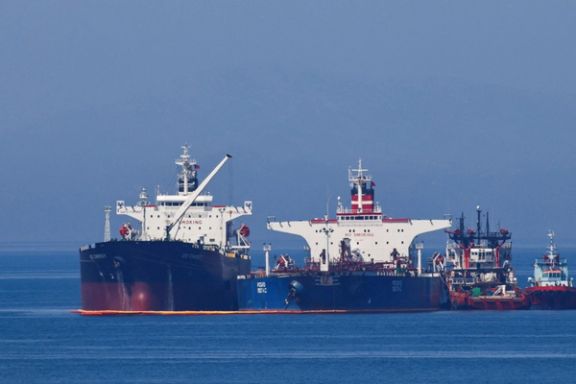
Iran's Defense Minister has issued a measured response to the seizure and offloading of Iranian oil by the United States earlier this year.

Iran's Defense Minister has issued a measured response to the seizure and offloading of Iranian oil by the United States earlier this year.
Characterizing the action as a “blatant act of theft”, Mohammadreza Ashtiani stressed that “such conduct is unequivocally unacceptable on the global stage.”
However, in a reserved response, he said, “While Iran reserves the option to respond and potentially take broader measures in the future ... the focus remains on diplomatic avenues", perhaps signaling the recent hostage exchange negotiations with the US which have seen $6bn of frozen Iranian funds freed up from South Korea in exchange for imprisoned US-Iranian citizens.
He did, however, assert the expectation that the US exercise restraint to avoid further complicating the situation.
On September 8, the US officially confirmed the seizure of an Iranian oil tanker back in April. The tanker, named Suez Rajan and managed by a Greek company, was carrying approximately 980,000 barrels of crude oil, allegedly intended for sale by Iran's Islamic Revolutionary Guard Corps to China, thereby contravening US and international sanctions. The US government had obtained a warrant for the seizure of the vessel earlier this year.
Following the seizure, Suez Rajan Ltd., the vessel's owner, pleaded guilty to sanctions violations, resulting in a $2.5 million fine.
Later, Iran seized two tankers in the Gulf region, leading to an escalation of tensions. The US accused Iran of interfering with navigational rights and harassment in both regional and international waters.
The US is currently in the process of formally taking ownership of the seized cargo, which holds an estimated value in the tens of millions of dollars and is slated for future sale.
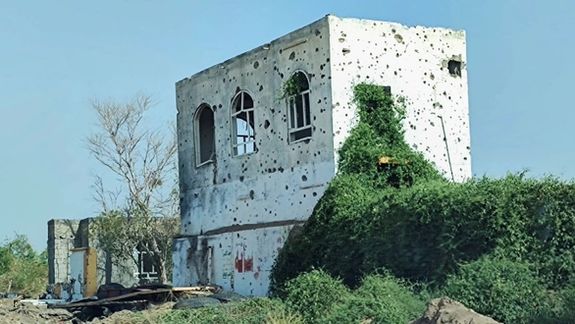
The United States on Friday welcomed Saudi Arabia's invitation to Yemen's Iran-backed Houthis for talks in Riyadh and described it as an "important step towards peace."
Saudi Arabia invited Yemen's Houthi delegation to Riyadh to continue ceasefire talks this week. The kingdom wanted to resume joint efforts with Oman to "reach a permanent and comprehensive ceasefire in Yemen and a sustainable political solution acceptable to all Yemeni parties," Saudi Arabia's state news agency said on Thursday.
The peace initiatives have gained momentum since arch-rivals Saudi Arabia and Iran agreed to re-establish ties in a deal brokered by China in March. A permanent ceasefire in Yemen would mark a milestone in stabilizing the Middle East.
"This important step towards peace expands on a series of engagements between Saudi Arabia and the Houthis," the US State Department said on Friday.
"The talks in Riyadh follow a visit by senior US officials to Saudi Arabia, Oman, and the United Arab Emirates last week to consult with our regional partners and the Yemeni parties about a viable path toward peace."
Iran has been supporting the Houthis since the conflict flared up in 2014. Tehran has evidently delivered small and large weapons to Houthis, as well as providing training. Houthis attacked Saudi Arabia multiple times with drones and ballistic missiles.
The trip marked the first official visit by Houthi officials to the kingdom since the war broke out in Yemen in 2014, after the Iran-aligned group ousted a Saudi-backed government in Sanaa.
The group has been fighting against a Saudi-led military alliance in a conflict that has killed hundreds of thousands and left 80% of Yemen's population dependent on humanitarian aid.
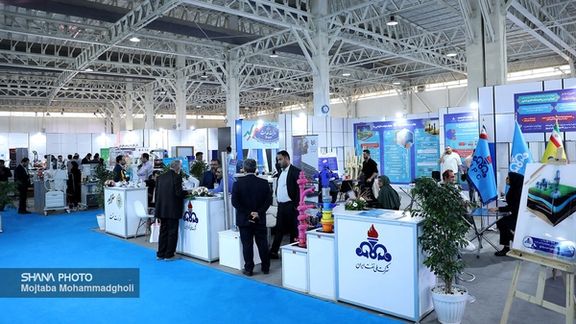
Exclusively reported by Iran International, German and Austrian firms reportedly joined the Iran Oil Show in May, run by the US-sanctioned National Iranian Oil Company.
According to the US government, the NIOC finances Iran’s Islamic Revolutionary Guard Corps-Qods Force—an entity classified as a foreign terrorist organization by America.
Fox News Digital first reported in an article titled “Skirting US sanctions, Iran earning billions from oil exports while Russia, China cash in” on the Iran Oil Show in Tehran.
Iran International has obtained the highly guarded handbook for the Iran Oil Show that lists the names of hundreds of companies allegedly present.
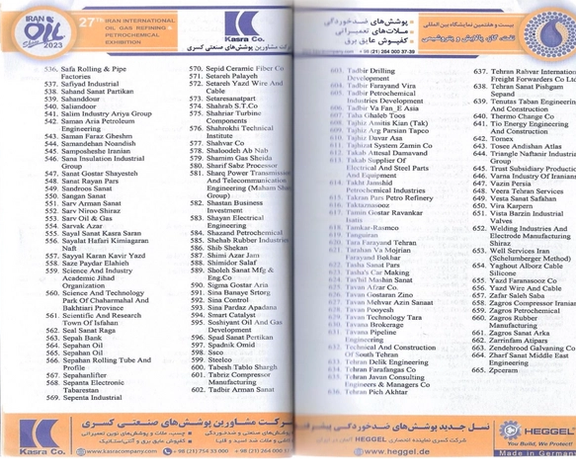
A source who attended the 27th Iran Oil Show in Tehran told Iran International that “Mainly Russian and Chinese companies” and “very few European companies, three or four,” were present at the Oil Show.
While manufacturing and engineering companies from Russia, Belarus, and China frequently violate US sanctions on Iran’s energy sector, the source listed names of Western companies who had stands at the show.
European engineering companies have shied away from conducting business with Iran since the US re-imposed sanctions on Tehran in 2018.
According to the source, the German manufacturer of turbomachines, JCL plant solutions, also had a stand at the Oil Show. Iran International spoke to a representative from JCL, who said on the phone that the firm was present for a “form of interview” at the Oil Show. Iran International written media queries to JCL went unanswered.
United Against a Nuclear Iran also sent a letter to JCL but did not receive a response about the company’s alleged presence at the Iran Oil Show.
The source said he heard people at the Oil Show speaking German. He said “There was more security than in the past” and “You could see security people with ear pieces.” The source termed the situation an “uneasy feeling” and noted that security guards were present “when the head of the atomic energy agency came in.” The source believes IRGC officials were present at the Oil Show.
The source’s information was further confirmed by the oil exhibition’s 22-page handbook obtained by the US-based organization United Against a Nuclear Iran (UANI). UANI provided Iran International with the handbook that lists Iran and foreign companies as attendees at the event.
The Austrian company Rotorise also had a physical presence at the Oil Show, the source said. Rotorise provides “parts and equipment for rotary machines,” according to its website. Rotorise did not respond to numerous written to an Iran International press query.
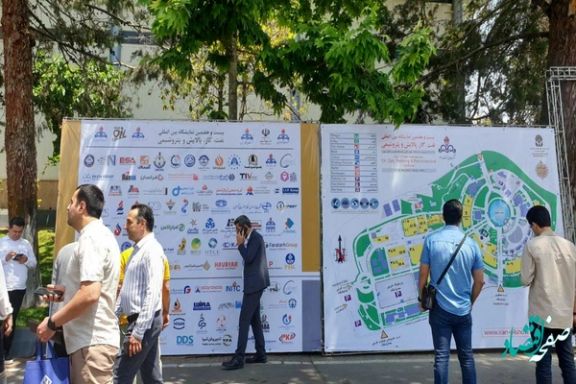
Iran International spoke to a representative from StockWerk Coworking GmbH, which handles telephone and written inquiries for Rotorise. StockWerk wrote by email, “we passed forward your mail to Rotorise yesterday, despite (sic) that they didn’t respond to us.” Stockwerk declined to provide a direct number for Rotorise to Iran International.
Daniel Roth the Research Director for United Against Nuclear Iran, told Iran international “It’s astounding that European companies like JCL and (reportedly) Rotorise are still willing to take these risks. Providing assistance - and not even ‘significant assistance’ - to NIOC, the Show organizer, is a sanctionable offense. Washington has the mandate to penalize companies even outside the US through ‘secondary sanctions’ and should be closely monitoring all participants and any deals that transpire. Chinese and Russian exhibitors, the most likely to actually sign contracts, should certainly not be excluded from scrutiny.”
Roth added “Almost five years after sanctions were rightly reimposed on Iran's IRGC-dominated oil industry, there is no earthly reason for foreign companies to still be supporting this sector. To actually go to the effort of sending your own co-workers to exhibit at the Iran Oil Show beggars belief. Beyond the legal and moral hazards, it's incredibly irresponsible with respect to employees' physical safety as they man their stalls in this Lion's Den staffed and enforced by trigger-happy terrorists.”
The emblem for the German manufacturing company Heggel also appears at the end of each page of the 22-page Iran Oil Show handbook, with the company’s website and motto “You build. We Protect!”
Iran International spoke on the telephone numerous times to a representative from Heggel who said she could not answer questions about Heggel and Iran.
Iran International sent multiple email queries to Heggel, which produces industrial protective coating systems, about its logo appearing in the handbook. The Tehran-based company Kasra states it is the “Exclusive Agent of Heggel GmbH” on its website.
Roth told Iran International that the “Dusseldorf-based Heggel's pointed refusal to comment on the fact that its logo appears on almost every page of the Show Handbook - for two years running - is a major red flag. It seems unlikely that Heggel's prominence is just another case of Iran appropriating a foreign company's name to boost its legitimacy. As ever, it's hard to square with Germany's pledge last year that there would be "no more business as usual" with the Islamic Republic. “
The Iranian regime-controlled media has dubbed the “Iran Oil Show 2023,” the “biggest oil exhibition in West Asia.” There were no American companies at the Oil Show.
Iran’s Oil Show listed a Swedish participant as a presenter at the event. However, the Swedish company Atlas Copco denied its presence at the Oil Show in a letter sent to UANI.
Atlas Copco, a multinational industrial company, wrote UANI “We have banned sales to and have no operational sites or employees in Iran. Previous to May 2018, certain limited sales were made in accordance with international agreements and sanctions. We will look into why our company name was listed as a participant at the fair which we had not authorized.”
A representative from Atlas Copco confirmed to Iran International by email that it did not attend the Iran Oil Show. Iran’s regime and Iranian conventions have over the years falsely listed European countries as participants at events. When confronted by news organizations, a number of the manufactured listed denied their presence.
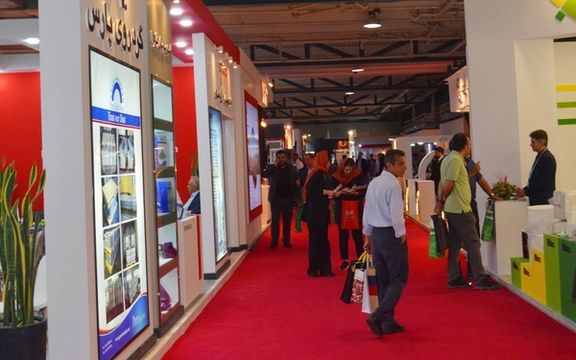
The Spanish company Resistencias Tope, S.A, which designs and manufactures customized industrial electric heaters, had a stand at the event, according to the source, and was listed in the Iran Oil Show handbook. Alex Lopez, a representative for Resistencias Tope, S.A, said on the telephone that the company did not send representatives to this year’s Iran Oil Show.
Iran International sent written press queries to Resistencias Tope, S.A. The Spanish company did not respond by email.
Turkish and Japanese companies were listed as participants in the handbook but denied their attendance. The Turkish company KFT Makine sent an email that it was not in attendance. The KFT spokesperson, Volkan Kaya, wrote “Most probably someone is misusing our name and using it illegally.” He added that “KFT is an international trading company that works globally and respects and obey all international trade regulations and norms. We also follow all US and EU sanctions against Iran…”
The Japanese company Yaskawa also appeared in the handbook. In a letter obtained by Iran International to UANI, Yaskawa denied that it participated at the Oil Show.
When asked if the US government will crack down on the alleged sanction busters, a US State Department spokesperson told Fox News Digital that “The United States is closely monitoring transactions involving Iran in the global oil market and has taken numerous actions against sanctions evaders around the world under the Biden Administration. Of course, we do not preview potential sanctions or enforcement actions.”
The State Department spokesperson added, “US sanctions on Iran's petroleum and petrochemical sectors remain in place and will continue unless and until Iran’s nuclear program returns to compliance with prior commitments.”
Iran International contacted Germany’s Federal Office for Economic Affairs and Export Control (BAFA) regarding whether BAFA approved the presence of German companies such as JCL plant solutions at the Oil Show.
The spokespeople for BAFA, Nikolai Hoberg and Ms. S. Schlemmer, did not provide clarification. Schlemmer did not reveal her first name in her email.
The Russian engineering company Alfa Horizon boasted about its appearance at the Oil Show, noting on its website “Bypassing geopolitical issues, the exhibition is gaining traction from year to year and attaining a key-event status in the Middle East. This year, more than 30 thousand guests a day visited the exhibition. 200 companies from 13 countries of the world presented their products.”
The reference to “Bypassing geopolitical issues” from Alfa Horizon is probably directed at efforts by the West to punish Tehran and Moscow for the war in Ukraine.
Iran’s regime is one of Russia’s strongest allies in its invasion of Ukraine, supplying Russian President Vladimir Putin’s forces with lethal drones.
Chinese companies, who, according to UANI, have business dealings in the US, did not immediately respond to Iran International press queries. UANI’s Roth said the Chinese companies also refused to respond to UANI letters.
The following Chinese companies have US sales, according to UANI, and were listed as attendees at the Iran Oil Show, SNY VALVE - Yancheng, Jiangsu China; Lishui Ouyi Valve Co., Ltd.; Anping County Guangming Metal Products Co., Ltd; Yangzhou Lontrin Steel Tube Co., Ltd.; and Hangzhou Fortune Gas Cryogeni Group Co., Ltd.
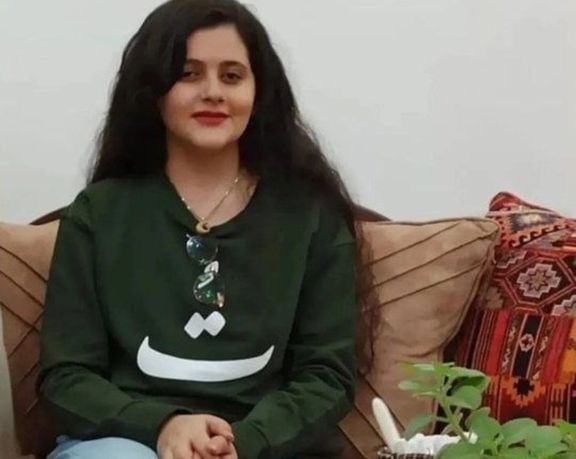
The US and Britain on Friday imposed sanctions on Iran ahead of the one-year anniversary of Mahsa Amini’s death, which sparked months of protests that faced a violent crackdown.
Amini’s death on September 16 last year at the hands of the morality police sparked months of anti-government protests that marked the biggest show of opposition to the Islamic regime since 1979. Iranian security forces have been deployed in her hometown and elsewhere in anticipation of unrest this weekend.
The United States and Britain, along with the European Union, have imposed multiple rounds of sanctions against Iran, for widespread and often violent crackdown on protests.
The US Treasury Department in a statement Friday said it imposed sanctions on more than two dozen people and entities it said were connected to Iran's "violent suppression" of protests and crackdown on dissenting voices and restrictions to internet.
The action targets 29 people and groups, including 18 key members of the Islamic Revolutionary Guard Corps (IRGC) and Iran's Law Enforcement Forces (LEF), as well as the head of Iran's Prisons Organizations, the department said. They also target officials linked to Iran's internet filtering and several media outlets.
The sanctions target LEF spokesperson Saeed Montazerolmehdi, multiple LEF and IRGC commanders, and Iran’s Prisons Organization chief Gholamali Mohammadi.
Douran Software Technologies CEO Alireza Abedinejad as well as state-controlled media organizations Press TV, Tasnim News Agency and Fars News were also among those sanctioned.
Britain separately announced its sanctions targeting senior Iranian decision makers enforcing Tehran's mandatory hijab law, including Iran's minister for culture and Islamic guidance, his deputy, the mayor of Tehran and an Iranian police spokesman.
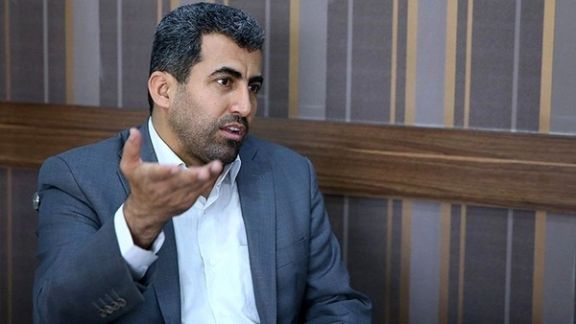
A senior Iranian lawmaker said Friday that part of Iran’s $6 billion released by the United States must go to the central bank to cover money already spent.
Mohammad-Reza Pourebrahimi, the chairman of the Iranian parliament's economic committee was quoted by local media as saying that part of Iran's freed assets needs to be directly deposited to the Central Bank of Iran, as the previous government of President Hassan Rouhani has spent the amount to cover government's expenditure.
The United States allowed South Korea in August to release the funds blocked due to US sanctions in exchange for five US citizens held hostage by Iran. However, the Biden administration has been insisting that the funds can only be used by Iran to import food, medicine, and other humanitarian needs.
"The Treasury Department has strict oversight over the use of those funds. We have visibility into how they are used, and we have the ability to police their use," State Department spokesperson Matthew Miller told reporters on September 12.
However, earlier this week, Iran’s President Ebrahim Raisi told NBC News that the money will be spent o whatever the Iranian people need. "This money will be budgeted for those needs and the needs of the Iranian people will be decided and determined by the Iranian government,” Raisi insisted.
There has been strong criticism of the Biden administration’s move in Congress. Many Republicans have accused the White House of caving into Iran and by offering a large ransom endangering the lives of other Americans.
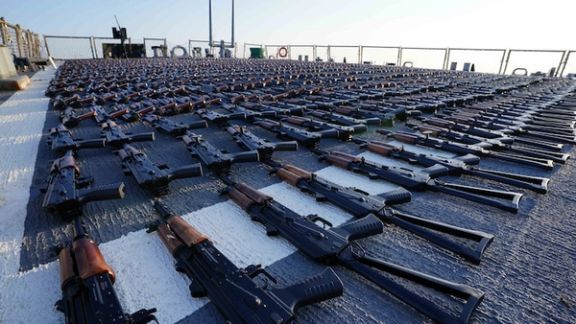
Saudi Arabia invited Yemen's Iran-backed Houthis to Riyadh to continue ceasefire talks, the state news agency SPA reported on Thursday.
The kingdom wanted to resume efforts helped by Oman to "reach a permanent and comprehensive ceasefire in Yemen and a sustainable political solution acceptable to all Yemeni parties," SPA added.
Mohamed Ali al-Houthi, head of the Houthi supreme revolutionary committee, said late Thursday that talks were continuing between Sanaa and the Saudi Arabia with Omani mediation.
The discussions included "paying salaries of the Yemeni employees, opening airports and ports, releasing all prisoners and detainees, the exit of foreign forces, and reconstruction leading to a comprehensive political solution," he said.
The Houthi al-Masirah TV reported earlier on Thursday that a delegation left Sanaa and was on its way to Riyadh to continue the negotiations.
The trip will be the first official visit by Houthi officials to the kingdom since the war broke out in Yemen in 2014, after the Iran-aligned group ousted a Saudi-backed government in Sanaa.
The peace initiatives have gained momentum since arch-rivals Saudi Arabia and Iran agreed to re-establish ties in a deal brokered by China. A permanent ceasefire in Yemen would mark a milestone in stabilizing the Middle East.
The first round of the Oman-mediated consultations between Riyadh and Sanaa, which are running in parallel to UN peace efforts, was held in April when Saudi envoys visited Sanaa.
The group has been fighting against a Saudi-led military alliance since 2015 in a conflict that has killed hundreds of thousands and left 80% of Yemen's population dependent on humanitarian aid.
Reporting by Reuters






